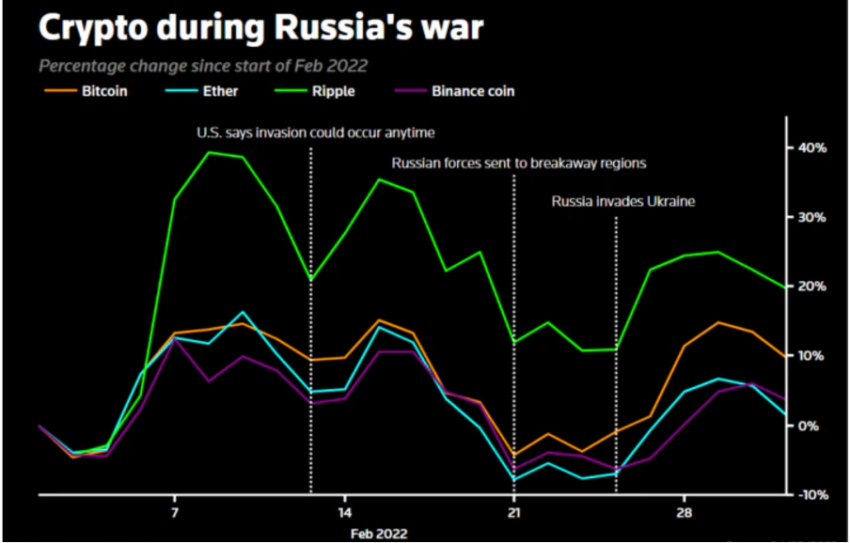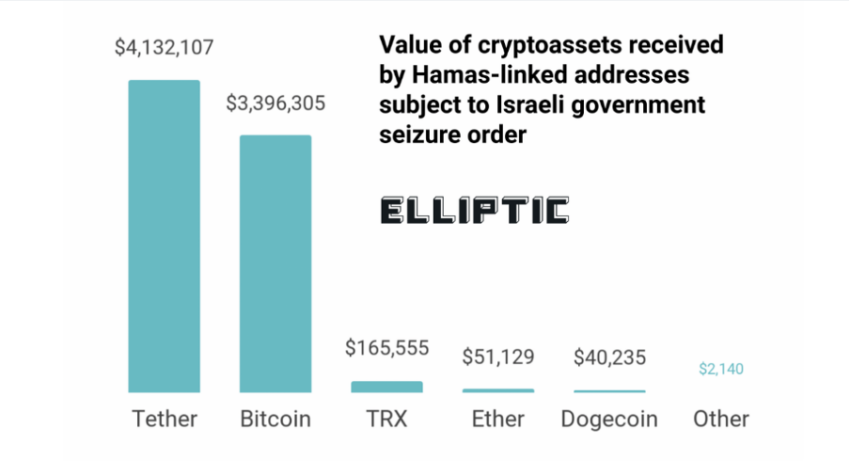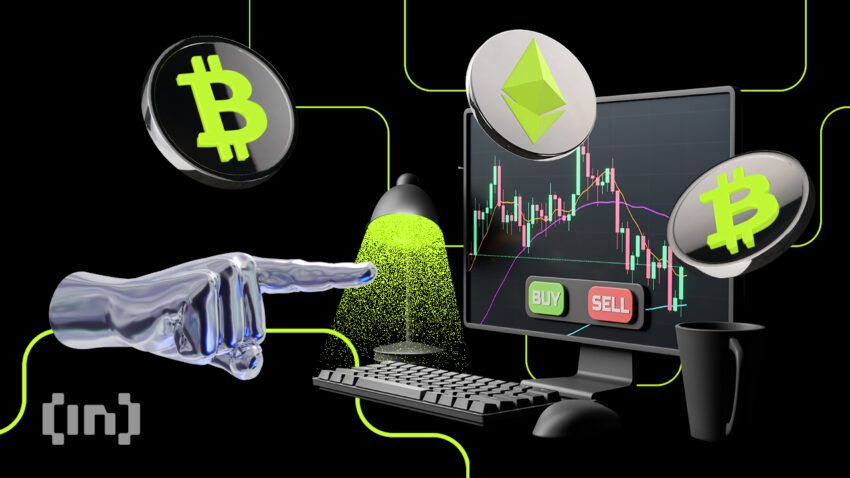Can Bitcoin become a weapon of war? First, Russia-Ukraine, and now Palestinians in the Gaza Strip are showing interest in Bitcoin and other cryptocurrencies. While the answers may become obvious, there are still some practical issues with crypto usage pre- and post-war.
How does a war, whether on a state or national level, affect cryptocurrencies?
Geopolitical tensions are at an all-time high, while the threat of a potential world war continues to rage on, most recently triggered by the unfortunate conflicts between Russia and Ukraine. These instances demonstrate that cryptocurrencies such as Bitcoin play a vital role in a fight to survive.
Struggles in Russia and Ukraine
Russia invading Ukraine stirred the globe as the war waged on. These digital assets have been making headlines since the invasion. Here’s how cryptos performed during the most horrific attack since World War II.
Bitcoin declined after Russia launched its initial assault on Ukraine as investors dumped riskier assets.

Although as the Russian soldiers marched in the Ukrainian territory, cryptos generally saw a sense of unity. This is evident in the graph above, given the incline.
One of the key reasons behind the rise in digital assets was crypto donations, as the pathway comes without border restrictions. Ukraine managed to raise millions of dollars just through these funding initiatives, reported Reuters.
Crypto Helping hands
The data provided by the blockchain analysis firm Elliptic showed around $19.80 million worth of crypto donations in Q1. The donations started pouring in when the government of Ukraine officially asked for Bitcoin (BTC), Ethereum (ETH), and Tether (USDT).
The unprecedented call for donations using digital tokens is something very new. These donations were made directly to Ukraine and group organizations supporting Ukraine, like hacktivist collective Anonymous. Funds came in from individuals, organizations, and crypto institutes. Even the now bankrupt exchange FTX took part.
This demonstrates crypto’s wartime potential at work. Crypto donations that otherwise would have been made to other charity organizations, now directly ended up in the wallets where they are needed.
Crypto has the potential to flourish as a post-war-era currency. But has that been the case for every war that continues to wage on even today? One such example is the ongoing conflicts between Israel and Palestine.
A Brief History
Over the past few years, violent face-to-face altercations between Israelis and Palestinians has evolved into all-out war. It is a conflict that has been raging for generations.
Jerusalem is one of the holiest lands for Christians, Jews, and Muslims. Israel claims the whole city as its capital, but Palestine proclaims East Jerusalem as the capital of its future state. For the past 50 years, Israel has built settlements in Jerusalem.
More than 600,000 Jews now live there, but the Palestinians say that’s illegal under international law. There have been numerous attempts at peace over the decades, starting in 1979, but tensions have remained high in East Jerusalem, Gaza, and the West Bank.
Bitcoin: A Weapon of War
Numerous individuals, mostly Palestinians, suffered a significant blow by the conflict – especially Palestinians in the blockaded enclave of Gaza. The disruption in day-to-day life also impacts the financial network.

Enter Bitcoin
The National News surveyed some individuals along the Gaza Strip and highlighted on their interest in crypto assets. “With Israel limiting trade and access, a growing number of residents are turning to cryptocurrencies to make a living — despite the risks,” it stated.
Gaza resident Noor had nothing to do with Bitcoin before her make-up boutique was destroyed during the 2021 war with Israel. Later, she started investing in cryptocurrencies to survive.
“My fortunes changed when I learned to invest in Bitcoin and started selling make-up online,” she said.
Dr. Tariq Dana, a policy adviser for Al-Shabaka, the Palestinian Policy Network, thinks an increasing number of locals have hopped on the crypto bandwagon because this is one way to gain independence from Israel’s financial regulations.
“I believe the decentralized bank status of crypto is encouraging enough for us [Palestinians] to have an income through a safe and freelance platform,” said Kareem, a resident of Gaza who also invests in Bitcoin.
In addition, the survey also incorporated insight from Haitham Zuhair – a Palestinian businessman and a crypto investor. Speaking on the matter, he said: “I am certain the drop in Bitcoin price has cost many traders in Gaza so much because their initial investments and capital are not as high as one would think.
“Education and experience are essential to persist with crypto as a space of online income and a symbolic tool of economic steadfastness in Palestine. It only takes one wrong call to lose an earth-worth profit in crypto.”
Despite these encouraging visions and datasets, concerns are always there.
Problems Right Around the Corner
While cryptocurrencies have opened the door for many Palestinians to profit from the global trade, it is not a viable avenue for Palestinian authorities, warns Mohammed Khaled, a business journalist in Gaza City.
“It is impossible to make state-level procedures with Bitcoin… the crypto exchange system in Palestine is centralized, meaning that Israel can pause deposits and withdrawals,” he added.
These concerns might be factual. Authorities in Israel seized $7.70 million in Bitcoin (BTC), and Dogecoin (DOGE) believed to be used by Hamas, a Gaza-supporting group.

A Practical Scenario
Fiat money has always taken a beating during wartime. ATMs stop functioning, and governments prohibit banks from allowing easy withdrawals, selling international currencies, or accepting payments of different kinds, leaving individuals cashless and unable to transact.
In extreme circumstances like an invasion, local banks holding currency will become inaccessible. Money surrogates such as grocery or fuel cards are likely to be used to buy all things essential. Expected outcomes are rising uncertainty and high inflation risks, similar to what happened with Ukraine, making something as basic as bread as a luxury commodity.
Crypto can potentially be seen as a solution to these issues. Peer-to-peer payments without third-party involvement can be seen as an independent, no-control solution. It cannot be regulated or stopped by any military organization or state government. A stable and secure decentralized payment method can theoretically withstand any political regime.
In conclusion, crypto and other digital assets have already started to show promising signs in the conflict between Ukraine and Russia, with millions of dollars in anonymous donations using the borderless power of blockchains. So, it’s only reasonable to imagine that they would play a significant part if the conflict were the start of WW3.
Cryptocurrency has the potential to become the global currency of the post-world era, but this would also gain the attention of hackers. Thus, even in post-war, cybersecurity will be the top priority.
Disclaimer
Following the Trust Project guidelines, this feature article presents opinions and perspectives from industry experts or individuals. BeInCrypto is dedicated to transparent reporting, but the views expressed in this article do not necessarily reflect those of BeInCrypto or its staff. Readers should verify information independently and consult with a professional before making decisions based on this content. Please note that our Terms and Conditions, Privacy Policy, and Disclaimers have been updated.


